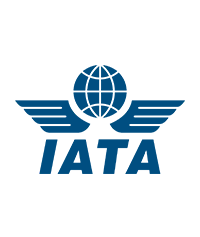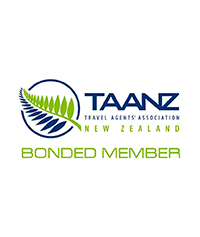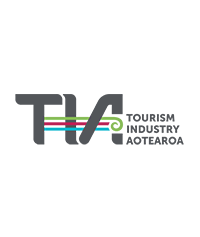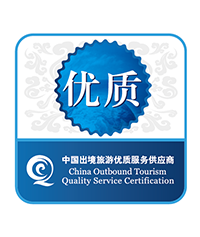Important information
Notice to Customers
- Travelmore is an inbound tour operator, and we are fully responsible for our own tourism products and services in that capacity (terms and conditions apply). However, when we are acting as a booking agency, Travelmore is only responsible for making bookings for customers on behalf of other tour suppliers.
- Travelmore has a strict vetting process for products. If customers request a new product for their tour itinerary, we will check its Qualmark status and reviews. If such product does not meet our vetting standards, we will advise the customer. If they still wish to proceed, we will highlight this on the vouchers or itinerary and make the following statement:
This product is at the request of the customer and has not been approved through the supplier vetting process. - Travelmore strongly suggests that customers buy travel insurance for themselves. All suppliers such as attractions, accommodation, and transport are responsible for their own service quality and safety. We will check their Qualmark status regularly.
- In the case of any accident where the customer does not have travel insurance, Travelmore cannot assist with compensation other than applying for ACC.
- If an activity is canceled due weather or any other force majeure, with no option to reschedule, Travelmore will refund the full booking fee only.
- Travelmore will always try our best to help resolve any problems between customers and suppliers.
New Zealand Customs Entry
New Zealand’s entry inspection is very strict, and a moment of negligence may cause serious economic losses or even force you to “go back home”.
- You must ensure that all information in your application is genuine, no matter if you applied by yourself or through another third party. You must strictly abide by the relevant regulations of New Zealand’s entry-exit inspection and quarantine, carefully check your luggage by yourself, and don’t take what you shouldn’t take into this country.
- Answer all the questions in the custom entry card and declare all the items in your luggage that need to be declared. If you are uncertain about anything, please write it down in the entry card. Discard any items which are prohibited by custom.
- From 01 Oct 2018, New Zealand custom officers have the right to check the contents of your electric device (mobile phone, computer etc) if they have a ‘reasonable suspicion’ of criminal activity. You must provide passwords or access codes to these devices. If you fail to do so, you will face a fine of $5000 and the devices will be forced to be unlocked or even discarded.
Informative sites for your reference
Tourism New Zealand www.newzealand.com/cn
New Zealand Immigration www.immigration.govt.nz
New Zealand Transport www.nzta.govt.nz
New Zealand Customs www.customs.govt.nz
New Zealand Ministry of Agriculture and Forestry Biosecurity www.biaosecurity.govt.nz
New Zealand Ministry of the Environment www.doc.govt.nz
New Zealand Police Service www.police.govt.nz
New Zealand Ministry of Consumer Affairs www.consumeraffairs.govt.nz
New Zealand Weather Enquiry www.metservice.com
New Zealand Visitor Driving Theory Test www.drivingtests.co.nz/roadcode/cn
Translated with www.DeepL.com/Translator (free version)
Keep Safe While Travelling
Don’t overlook safety! Travelling in New Zealand is generally safe; however theft and violent robbery occur from time to time. Cases of car smashing and property theft emerge endlessly, and even cases of whole luggage trailers being stolen have occurred.
- Do not carry a large amount of cash with you, do not leave property and important documents in the car after getting off, and do not trust other outsiders to help you take care of property.
- Property and important documents should be properly stored and kept separately. It is recommended to keep copies of passports and visas for emergencies.
- Avoid going to remote areas alone as far as possible, keep communication open at all times, and regularly inform relatives and friends in China of your journey.
- When choosing tourism activities and attractions, choose options suitable for you. Rock fishing, skydiving, surfing, bungee jumping, diving and drifting are popular and adventurous tourist activities with New Zealand style, but they have certain safety risks. You should take full account your physical and psychological wellbeing at all times.
Self-Driving in NZ
Many self-driving tourists rush on the road after getting off the plane and getting a vehicle, which has significant traffic safety risks. There are many traffic accidents involving self-driving tourists in New Zealand every year, so pay attention and make sure that’s not you!
- Make sure you understand and strictly abide by New Zealand traffic regulations and road code. You will have to adapt to left-hand driving, and follow the principle of “giving way to the right” when changing lanes, turning and entering roundabouts.
- Before you set off, check the vehicle’s condition, maintenance and insurance. Familiarize yourself with the road conditions in advance, including checking MetSafe for weather, and make sure that the driver’s physical and mental condition is not affected by jet lag or lack of rest.
- There are many steep slopes and sharp bends in New Zealand, so heed speed signs and drive slowly with care.
- Do not use mobile phones to talk or take photos while driving. Speeding, drunk driving, and driving while fatigued are strictly prohibited.
- When passing by pedestrian zebra crossings, you should immediately slow down and stop to give way to pedestrians.
More traffic rules and self-driving precautions can be found in the “New Zealand Self-Driving Safety Manual” issued by the NZTA.
https://www.nzta.govt.nz/safety/visiting-new-zealand/
Emergency
In case of emergency while travelling, don’t panic and you can solve the problem in many ways.
- In case of traffic accidents, robbery, theft and other situations, you can call the local emergency telephone 111 (ambulance, police, fire) immediately. If you can’t communicate in English, you can ask them to arrange for Chinese police officers to receive the case (most hospitals also provide Chinese translation services). More safety information can be found in the “New Zealand Police Manual” issued by the New Zealand Police.
- In case of accidental injury, you should immediately seek medical treatment. New Zealand has a complete social security system, with special accident injury insurance (ACC insurance) responsible for compensating for personal injury caused by accidents. The injured, regardless of nationality, age and occupation, can receive ACC insurance compensation. At the same time, we still suggest you purchase commercial insurance such as travel insurance, life insurance or property insurance.
- If you need the assistance from our company or the Chinese Embassy and Consulate in New Zealand, please call the consular protection duty telephone.
Travelmore International Tour limited: 0064211309063 Jenny
Embassy of New Zealand: 006421 528663
Consulate General in Auckland: 0064 27 490 5381
Consulate General in Christchurch: 006421 1767288
The Global Emergency Call Center for Consular Protection and Services of the Ministry of Foreign Affairs of China: 0086 10 12308 or 0086 10 59913991.






